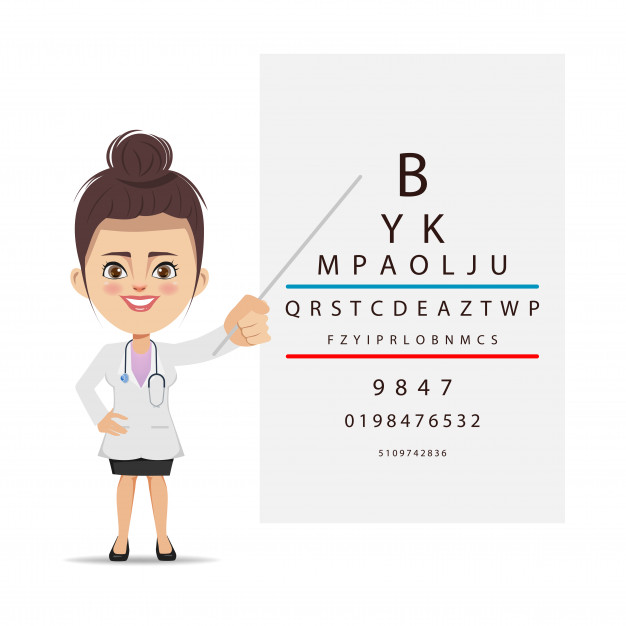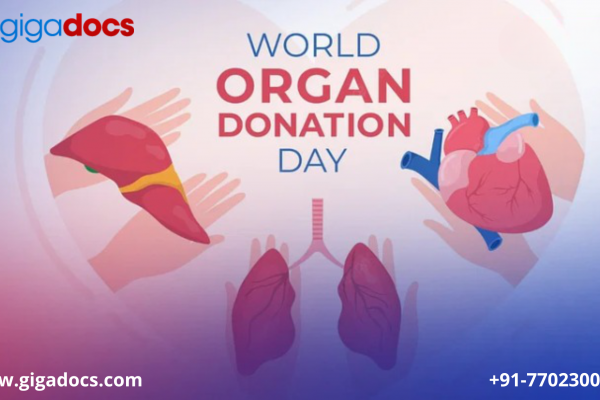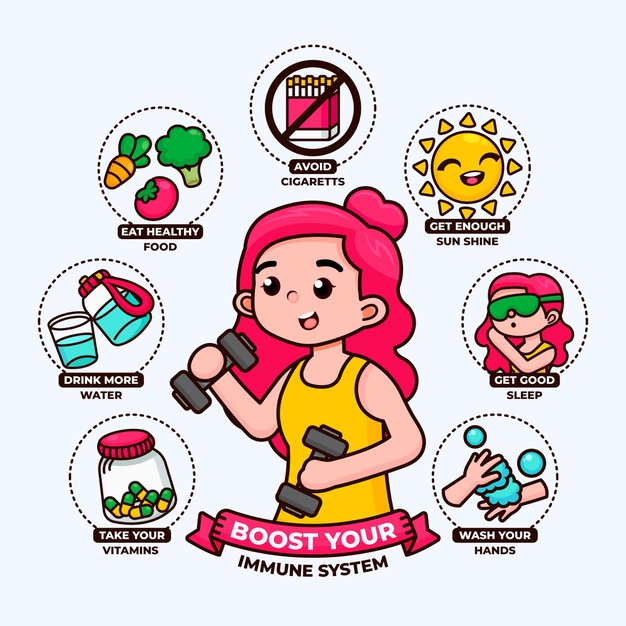Eye infectivity is so common that we all suffer from some or the other forms of vision problems once in a lifetime. Research estimates believe that globally more than 300 million people are visually impaired (this includes blind + moderately and severely visually impaired people).
Some eye problems like eye dryness may be minor while some like diabetic retinopathy may need specialist care. Our eyes continue to be one of the most precious assets. To raise awareness on the global concerns of blindness and vision impairment the World Health Organisation (WHO) acknowledges 8th October as the world sight day, while the entire month of October annually is observed as the Blindness Awareness Month.
Delaying medication or ignoring blurry vision or vision problems can potentially damage one’s eyesight. Here are the most common eye problems that deter normal eye vision and may need a visit to an Ophthalmologist-
- Age-related Macular Degeneration (AMD)
AMD interferes with the clear vision that one may have while reading and driving. AMD is age-related, implies that it is common amongst older people. “Macular” attacks the macula part of our eyes.
AMD follows a slow onset, those who contract AMD may not suffer any vision difficulty for a long time. However, for some, it may progress at a faster pace. AMD may not cause complete blindness but can make it tough for the infected person to undertake routine tasks like driving, cooking or fixing things around the house. Symptoms of AMD include experiencing a blurry area near the centre of vision, which may get bigger. Eventually, the infected person may see blank spots over time.
- Glaucoma
Glaucoma develops when one develops an elevated intraocular pressure (IOP) in their eyes. IOP may cause vision loss affecting the optic nerves. Glaucoma is painless (open angle Glaucoma) or angle-closure glaucoma, which is related with the pulsating pain and eye redness, and often leads to farsightedness and cataracts
Though a patient may face no symptoms at the earlier onset of glaucoma, over time the vision gets affected, leading to permanent damage. The growth of glaucoma can be slowed with supervised treatments, which include laser, eye drops and prolonged medication which may include surgery.
- Cataract
Cataracts are common among senior citizens and are characterized by a cloudy, milky white lens in one or both the eyes. The most common causes of cataracts include injury and UV exposure. A cataract causes the eye’s lens to cloud. If left untreated it may lead to severe vision loss.
The prescriptive treatment for cataract includes surgery. The degree of vision loss and how much is the daily lifestyle of the infected is affected determines the timing of the surgery
- Keratoconus
The clear outer lens of the eye or the cornea is shaped like a ball or a dome. However, if the collagen that holds the cornea in place becomes weak, the cornea may become cone-shaped, a condition known as keratoconus. If not treated early, Keratoconus can cause serious vision loss.
The treatment of Keratoconus starts with eyeglasses or contacts lenses. The rigid gas permeable contact lenses may be recommended to strengthen the cornea and improve the vision of the infected. Other forms of Keratoconus treatment include intacs, cornea collagen crosslinking, and cornea transplant.
- Diabetic Retinopathy
Diabetic retinopathy is common among people who have high blood sugar levels and are diagnosed with type 1 and 2 diabetes. Excessive blood sugar for diabetes has the potential to alter their blood vessels in the back of the eye, restricting the flow of nutrients to the retina to maintain a healthy vision. Diabetic retinopathy signs and symptoms range from impaired blurred vision, color recognition, fluctuating vision and dark spots.
Diabetic retinopathy can attack anyone with high blood sugar. However, the risk factors include the severity of diabetes, the fluctuation of blood glucose levels, the history of the diabetes onset and how well are the sugar levels controlled.
Diabetic retinopathy becomes difficult to cure in its advanced stages and may lead to blindness in extreme conditions. Treatments include. Vitrectomy (in earlier stages). Photocoagulation or laser treatment for retinopathy can prevent vision loss in the advanced stages before the retina gets severely damaged.
- Floaters
Floaters are common among those who are above 50 years of age. Floaters or specks float around vison are a jelly-like substance that are the protein deposits drifting about in the middle of the eye. They don’t block vision, are benign in the beginning. However, floaters in advanced stages may point to retinal detachment.
It is advised to visit an Ophthalmologist if you notice flashes or spots in your vision when you look at the plain bright background like a blue sky or a white wall.
- Dry Eyes Syndrome
Dry eyes are common among people who sit in front of an electronic device like a computer/ laptop for a longer duration of time. There can be a host of reasons that may cause dry eyes, the most common been the inability of your body to produce enough tears or secretion of low-quality tears.
The common symptoms of dry eyes range from extreme light sensitivity to continuous stinging or burning sensation in the eyes especially felt in an air-conditioned room, or looking at the computer screen without any breaks. You should always take a small break blink your eyes to keep our eyes lubricated and clean your contact lenses regularly.
- Conjunctivitis (Pinkeye)
Also known as pinkeye, Conjunctivitis inflames the back of eyelids thereby covering the sclera (conjunctiva). Pink eyes are highly contagious turning healthy eyes into blurry, teary itching red. Conjunctivitis can range from allergic conjunctivitis caused by the seasonal changes that trigger an allergic reaction within their eyes. Bacterial conjunctivitis by streptococcal or staphylococcal bacteria is transferred via the respiratory system or skin.
- Near-sightedness (Myopia)
Myopia or near-sightedness occurs when one has a clear vision of close things but suffers from a blurred vision of things that are far away. Near-sightedness can be hereditary running in the family and get severe mostly during childhood and adolescence. Myopia symptoms range from partial closing of the eyelids, squinting while viewing objects at night (night myopia) when driving.
Far-sightedness (Hypermetropia)
Hypermetropia or farsightedness happens when one has a clear vision for the far placed things while experiencing a blurry vision of nearby objects.
The signs of Hypermetropia include tiredness in eyes, the constant need to squint for a better vision and a constant headache while focusing on close-by objects. Treatment can be contact lenses, LASIK surgery and corrective spectacles.
Eye Caring with Gigadocs
Eyes are a highly complex and sensitive body part that needs special attention for healthy, vibrant wellbeing. Seeing your Ophthalmologist regularly is the best way to assure a healthy vision for years to come.
Book an eye doctor on the Gigadocs app that mitigates any chances of coronavirus infectivity that can transmit through face to face in a personal consultation. Instead, book a digital doctor on the Gigadocs app, and discuss your eye problems, blurry vision, eyeball pain, eye dryness from the comfort and privacy of your home.
Gigadocs offers vitals tracking, health record maintenance system, digital prescriptions all integrated into a unified user-friendly app. Gigadocs has bought its Vaccination Schedule Chart for parents to help them generate the complete vaccination chart of their child punching their date of birth.
Download the Gigadocs app from the App Store and Play Store and register for free to avail a complete range of digital healthcare solutions tailed to match your requirements.
To Download Gigadocs app-
- IOS App – apple.co/2W2iG4V
- Android App – bit.ly/33AQoRC
To know more and schedule a Virtual Consultation demo, e-mail, at info@gigadocs.com




